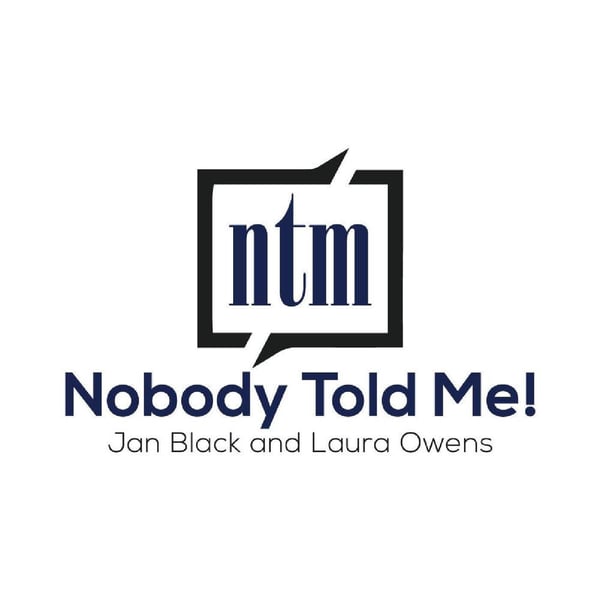Dr. Elizabeth Englander: ...how to cope with bullying
Nobody Told Me!
Nobody Told Me!
4.2 • 671 Ratings
🗓️ 26 July 2020
⏱️ 34 minutes
🧾️ Download transcript
Summary
On this episode, we’re taking a look at bullying and cyber-bullying in the age of COVID-19. Joining us is psychology professor Dr. Elizabeth Englander, the Director of the Massachusetts Aggression Reduction Center at Bridgewater State University. Her research focuses on bullying and cyberbullying prevention, and the center she directs provides free training in that regard to hundreds of schools every year.
Dr. Englander is the author of the book, 25 Myths about Bullying and Cyberbullying.
You can learn more about her and her books by going to https://www.englanderelizabeth.com.
***
Thanks to our sponsors of this episode!
--> BetterHelp: get 10% off your first month of online counseling if there are issues that are interfering with your happiness or preventing you from achieving your goals by visiting betterhelp.com/nobody.
--> Stamps.com: 4 week trial plus free postage and a digital scale without any long-term commitment. Go to stamps.com, click on the microphone at the top of the homepage, and type in NTM.
Learn more about your ad choices. Visit megaphone.fm/adchoices
Transcript
Click on a timestamp to play from that location
| 0:00.0 | Welcome to Nobody Told Me. |
| 0:13.5 | I'm Laura Owens, and I'm Jan Black. |
| 0:15.8 | On this episode, we're taking a look at bullying and cyberbullying in the age of COVID-19. |
| 0:22.1 | Joining us is psychology professor, Dr. Elizabeth Englander, |
| 0:25.5 | the director of the Massachusetts Aggression Reduction Center at Bridgewater State University. |
| 0:30.8 | Her research focuses on bullying and cyberbullying prevention, |
| 0:34.5 | and the center she directs provides free training in that regard to |
| 0:38.5 | hundreds of schools every year. And Dr. Englander is the author of the book 25 myths about |
| 0:44.0 | bullying and cyberbullying. Thank you so much for joining us today. This is such an important topic |
| 0:49.2 | and one that my mom and I talk about a lot, actually. Thanks for having me. It's really interesting to think about this topic because I could see it going both ways |
| 0:58.7 | where bullying would have gotten better or it would have gotten worse with all the kids |
| 1:04.0 | at home quarantining. |
| 1:06.0 | I could see it being worse because the kids would have so much time on their phones to cyber |
| 1:10.0 | bully, but at the same time it could be better because they don't have the exposure to their peers. What are your |
| 1:15.3 | insights on that? Well, I think there's no doubt that there are some kids who are probably relieved |
| 1:21.0 | to be out of school and not to have to deal with any of these social problems fighting or bullying |
| 1:25.8 | in school. And it is true that a lot of kids say that that is the most upsetting form of bullying |
| 1:33.7 | for them. |
| 1:34.7 | But having said that, we also know that kids screen time during this pandemic has doubled. |
| 1:41.9 | And by doing so, we've really increased sort of the opportunity for problems like |
| 1:46.7 | cyberbullying to happen. I don't think anybody's actually studied it during the pandemic, |
| 1:53.2 | but we've got a lot of reports from parents and anecdotal evidence that there are kids who |
... |
Please login to see the full transcript.
Disclaimer: The podcast and artwork embedded on this page are from Nobody Told Me!, and are the property of its owner and not affiliated with or endorsed by Tapesearch.
Generated transcripts are the property of Nobody Told Me! and are distributed freely under the Fair Use doctrine. Transcripts generated by Tapesearch are not guaranteed to be accurate.
Copyright © Tapesearch 2025.

